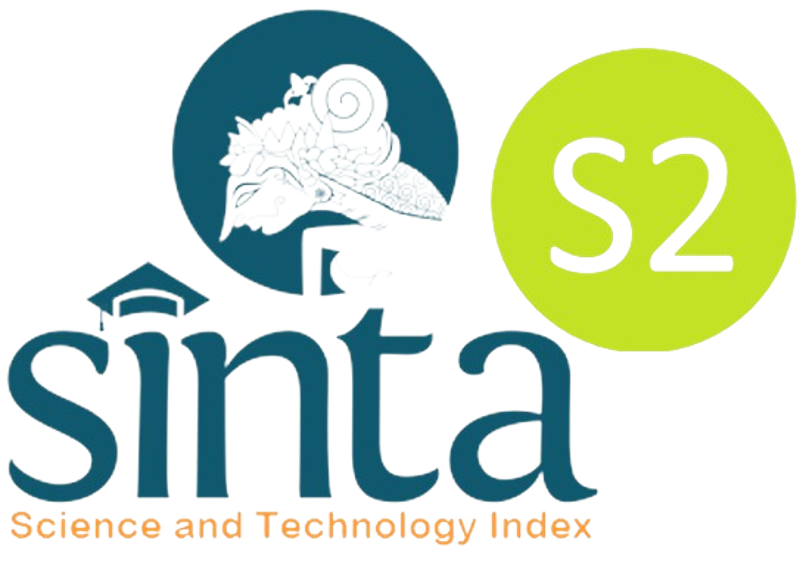Contribution of Learning Facilities Management Practices and Instructors Competency on Learning Outcomes of Students in Seamanship Education Center
Abstract
Abstract: Contribution of Learning Facilities Management Practies and Instructors Competency on Learning Outcomes of Students in Seamanship Education Center. Objectives: This study aimed to determine the influence of learning facilities and instructor competencies on students’ learning outcomes at Seamanship Education Center of Malahayati Aceh, Indonesia. Methods: This study employed a quantitative approach with correlation techniques and questionnaire as an instrument. Data collection techniques: sampling on a non-probability sampling basis. Research sample is 100 students of the Formation Seafarers Training III Nautical and Technical Department. Findings: The results of this study indicate that: (1) there is a significant influence between learning facilities on student learning outcomes partially; (2) there is a significant influence between instructor competencies on student learning outcomes partially.
Keywords: learning outcomes, learning facilities, instructor competency.
Abstrak: Kontribusi Praktik Manajemen Fasilitas Pembelajaran dan Kompetensi Instruktur pada Hasil Belajar Siswa di Pusat Pendidikan Ilmu Pelayaran. Tujuan: Penelitian ini bertujuan untuk mengetahui pengaruh fasilitas pembelajaran dan kompetensi instruktur terhadap hasil belajar siswa di Seamanship Education Center Malahayati Aceh, Indonesia. Metode: Penelitian ini menggunakan pendekatan kuantitatif dengan teknik korelasi dan kuesioner sebagai instrumen. Teknik pengumpulan data: pengambilan sampel berdasarkan non-probabilitas pengambilan sampel. Sampel penelitian adalah 100 siswa dari Pelatihan Pelaut Pembentukan III Departemen Kelautan dan Teknis. Temuan: Hasil penelitian ini menunjukkan bahwa: (1) terdapat pengaruh yang signifikan antara fasilitas pembelajaran terhadap hasil belajar siswa secara parsial; (2) ada pengaruh yang signifikan antara kompetensi instruktur terhadap hasil belajar siswa secara parsial.
Kata kunci: hasil belajar, fasilitas belajar, kompetensi instruktur.
Full Text:
PDFReferences
Asadollahi Kheirabadi, M., & Mirzaei, Z. (2019). Descriptive valuation pattern in education and training system: a mixed study. Journal of Humanities Insights, 3(01), 7-12.
Chanamarn, N., & Tamee, K. (2017). Enhancing Efficient Study Plan for Student with Machine Learning Techniques. International Journal of Modern Education and Computer Science, 9(3), 1.
Devlin, M., Kristensen, S., Krzaklewska, E., & Nico, M. (2017). Learning mobility, social inclusion and non-formal education: Access, processes and outcomes (Vol. 22). Council of Europe.
Ddungu-Kafuluma, M. J., John, S., & Simon, W. (2018). The role of training philosophy in the training of quality technical teachers and instructors in Uganda.
Gaur, A. D., & Jasmin, P. (2017). Ease of Doing Business in India: Challenges & Road Ahead. In International Conference on Technology and Business Management (pp. 77-84).
Ghaffarzadegan, N., Larson, R., & Hawley, J. (2017). Education as a complex system. Systems research and behavioral science, 34(3), 211.
Goh, J. W. P., & Salleh, H. (2018). An Investigation of the Impact of leadership practices on student learning and development outcomes in Singapore primary schools.
Goh, C., Leong, C., Kasmin, K., Hii, P., & Tan, O. (2017). Students’ experiences, learning outcomes and satisfaction in e-learning. Journal of E-learning and Knowledge Society, 13(2).
Huda, M., & Teh, K. S. M. (2018). Empowering professional and ethical competence on reflective teaching practice in digital era. In Mentorship Strategies in Teacher Education (pp. 136-152). IGI Global.
Ker, H. W. (2016). The impacts of student-, teacher-and school-level factors on mathematics achievement: an exploratory comparative investigation of Singaporean students and the USA students. Educational Psychology, 36(2), 254-276.
Mok, O. N. A. (2011). Non-formal learning: clarification of the concept and its application in music learning. Australian Journal of Music Education, 1, 11-15.
Morgan, M., Sinclair, J., Butler, M., Thota, N., Fraser, J., Cross, G., & Jackova, J. (2018, January). Understanding international benchmarks on student engagement: awareness and research alignment from a computer science perspective. In Proceedings of the 2017 ITiCSE Conference on Working Group Reports (pp. 1-24).
Norqvist, L., Leffler, E., & Jahnke, I. (2016). Sweden and informal learning—Towards integrated views of learning in a digital media world: A pedagogical attitude? In M. Harring et al. (Eds.), Handbuch Informelles Lernen [Handbook of informal learning] (pp. 217–235). Weinheim: Juventa/BeltzVerlag.
Nugraemi, U., & Usman, O. (2019). Effect of Learning Habit, Learning Environment, and Support Parents on Student Learning Outcomes. Learning Environment, and Support Parents on Student Learning Outcomes (July 5, 2019).
Papic, M., & Garabinovic, D. (2017). The position of entrepreneurship and entrepreneurial education in formal and non-formal education in Serbia. EDUCATION FOR ENTREPRENEURIAL BUSINESS AND EMPLOYMENT, 60.
Penttinen, E., Halme, M., Lyytinen, K., & Myllynen, N. (2018). What influences choice of business-to-business connectivity platforms?. International Journal of Electronic Commerce, 22(4), 479-509.
Razumovskaya, M., Zaitseva, N. A., Larionova, A. A., Chudnovskiy, A. D., & Breusova, E. A. (2018). prospects for applying various forms of organizational integration to improve the quality of education. Astra Salvensis, 6, 348-36.
Rubtcova, M., & Pavenkov, O. (2019, May). Informational Communication Technology as the Approach to Improve the Quality of Education in Russia. In ISER-607th International Conference on Education and Social Science (ICESS-2019), Pune, Maharashtra, India.
Siegle, D., McCoach, D. B., & Roberts, A. (2017). Why I believe I achieve determines whether I achieve. High Ability Studies, 28(1), 59-72.
Tasopoulou, K., & Tsiotras, G. (2017). Benchmarking towards excellence in higher education. Benchmarking: An International Journal.
Zhang, L., & Liu, Z. (2018, March). Planning to Improve the Quality of Basic Education. In 2nd International Conference on Culture, Education and Economic Development of Modern Society (ICCESE 2018). Atlantis Press.
Refbacks
- There are currently no refbacks.
Copyright (c) 2020 Jurnal Pendidikan Progresif

This work is licensed under a Creative Commons Attribution-ShareAlike 4.0 International License.
View My Stats

The copyright is reserved to The Jurnal Pendidikan Progresif that is licensed under a Creative Commons Attribution-ShareAlike 4.0 International License.





